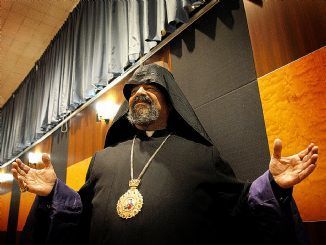1st INTERNATIONAL SYMPOSIUM ON GENOCIDES OF HISTORY: FACTS, REALITIES, FALSIFICATIONS
2-3 April 2015
Baku, Azerbaijan
MIRAS Social Organization in Support of Studying of Cultural Heritage will hold 1st International Symposium on Genocides of History in Baku city of Azerbaijan.
Information. In the history there are rather many people claiming to be exposed to genocide and demanding their rights. What is genocide? Which tragedies and massacres can be considered as genocides? In the Convention for the Prevention and Punishment of the Crime of Genocide: “genocide means any of the following acts committed with intent to destroy, in whole or in part, a national, ethnical, racial or religious group, as such: killing members of the group; causing serious bodily or mental harm to members of the group; deliberately inflicting on the group conditions of life calculated to bring about its physical destruction in whole or in part; imposing measures intended to prevent births within the group; forcibly transferring children of the group to another group”. It is recognized in the preamble of the Convention that “all periods of history genocide has inflicted great losses on humanity”.
Goal. The symposium aims at bringing together historians and researchers from the various world countries who write articles, study and discuss crime of genocide. Many reasonable and groundless claims on the issue exist over the history. Views of the scientific community will be learnt on methods of researches of these claims, the done analyses and the results obtained and to be printed. It is expected to publish materials of new studies and archives within the symposium. Symposium is intended to be held as range of events to follow new researches in the future.
Main topics:
– What is genocide? Juridical solution of the problem;
– Methods of research of genocide history;
– Genocides of pre-20th century;
– Genocide acts on eve of 1st World War;
– Genocide acts on eve of 2nd World War;
– Political systems and genocides committed;
– Genocides in Azerbaijani history.
Deadline of call for abstracts: 10 March, 2015
Notifications of acceptance of abstracts: 15 March, 2015.
E-mail: [email protected]
Web: www.miras.az
SOURCE: Jafar Mansimi





